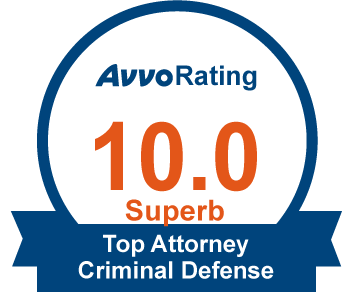If you or someone you love has recently been arrested in the San Diego area on charges of drug possession with the intent to sell, you are potentially facing very serious, long-term consequences if convicted. Rather than risk heavy fines, long jail sentences, and a permanent felony drug conviction on your criminal record, you can maximize the chances of a favorable outcome by hiring a skilled California drug-crimes defense lawyer.
At the Law Offices of Anna R. Yum, we understand that many Californians are arrested every year on false or exaggerated drug crimes charges, including on allegedly possessing illegal drugs with intent to sell.
While we have the intricate knowledge of California drug law necessary to win your case, it also helps you to feel less confused and overwhelmed by the legal process if you understand it a little bit better. Therefore, we have given you the basics on the California Health & Safety Code violation drug possession with intent to sell just below:
Free Consultation (619) 233-4433
Definition of Drug Possession with Intent to Sell
California Health and Safety Code Section 11351 criminalize the possession of certain controlled substances, along with the intention to later sell them, as a felony. A controlled substance is defined as one regulated by the U.S. Controlled Substances Act, including such illegal drugs as cocaine, heroin, opiates, GHB, peyote, and certain hallucinogens, as well as certain prescription drugs (if abused) like Oxycontin, Codeine, and Vicodin.
The legal elements of the crime, which the prosecutor must prove, are:
- You did, in fact, possess a controlled substance.
- You were aware of the identity of the drug as a controlled substance.
- You possessed a sufficient quantity to make selling the drug possible.
- You had an intention to sell the illegally possessed drug.
Who Can Be Charged?
Take a look at these specific situations that have led to charges for drug possession with the intent to sell. If, after reviewing these examples, you have further questions, do not hesitate to contact the Law Offices of Anna R. Yum for further advice.
Example 1:
Bruce would get monthly prescriptions for Vicodin. Instead of using them himself, he would stock up on them. Once he saved up at least four months’ worth of Vicodin, he would sell them. His actions would be considered abusing his prescription medication. Selling prescription meds that were only intended for the patient is also a crime.
Under these circumstances, the Vicodin is a controlled substance that Bruce illegally abused by saving them up with the intent to unlawfully sell them. He could face charges under HS 11351, possession of a drug with the intent to sell.
Example 2:
Cale went out partying, often carrying his backpack with him for BYOB(bring your own beer) occasions. He had placed his backpack down on the floor outside the bathroom to relieve himself. When he came back out, his backpack was gone. When he asked if anyone had seen it, someone pointed to a backpack near the front door. Cale picked it up and left the party.
Once he got home and opened the backpack, he discovered it wasn’t his. It contained small bags of white powder and several bags of mushrooms. He instantly knew the white powder was cocaine and the mushrooms were most likely hallucinogenic. Anxious to get rid of it, he contacted a friend of his that often possessed similar drugs. When his friend asked him how much he would like for the backpack, Cale named a price.
If Cale simply got rid of the bag, scared of even possessing it, the results would be different. At this point, he would face charges for violating HS 11351, drug possession with intent to sell. He knew what type of drugs they were and intended to sell them.
Now, if he actually drives over to his friend’s home and sold the contents of the backpack, Cale would face charges for HS 11352, the sale and transport of drugs.
Example 3:
Zach wanted to earn a little extra money to pay his rent. A friend suggested he sell some of his acid sweet-tarts. Zach seriously thought about it. When one of his roommates overheard the conversation, they reported him to the landlord.
In this case, if Zach actually intended to sell his personal stash of acid, he could face drug possession with the intent to sell. However, Zach only thought about it, but never intended on selling them. That does not mean he will not face a drug offense. Because Zach actually possessed illegal substances, he could still face charges for HS 11350, simple possession.
Example 4:
Mike was always hosting neighborhood BBQs, even when he didn’t know some of his neighbors. He hosts a BBQ and invites everyone on his block. One of his new neighbors, Cindy, is not aware that Mike is an avid cannabis user and grows his own plants in his backyard. This makes Cindy uncomfortable. She later overhears a conversation in which Mike jokes about his peyote experience. Knowing peyote is an illegal drug, she anonymously reports Mike for possibly being a drug dealer and accuses him of drug possession with intent to sell, HS 11351 and illegal possession of marijuana for sale, HS 11359.
Upon further investigation, Mike has a medical marijuana card and is within his rights to possess and grow his own medicinal cannabis. However, his jokes about peyote held some truth. At this point, he could face charges for simple possession under HS 11350. Unfortunately, he was found with enough peyote to affect more than one person. If the amount found is enough to considerably have a mental effect on more than just oneself, simple possession can rise to charges of drug possession with intent to sell under HS 11351.
Possible Penalties for Possession With Intent to Sell
Unlike simple possession, possession with intent to sell is not a “wobbler,” meaning that it cannot be reduced to a misdemeanor, though it is possible to obtain probation and as little as one year in county jail instead of the full penalty. However, there is no possibility of getting into a drug diversion program, which would replace incarceration time with drug treatment. Nor is there a possibility of being eligible for drug court.
Possible sentences include:
- Two to four years in a county jail
- A fine of up to $20,000
- Both the fine and jail term
Factors that can make the punishment even more severe include:
- A prior drug-crime felony on your record (other than simple possession). This adds three years to the jail term.
- The type/amount of drug you possessed and intended to sell. Larger amounts and more powerful drugs will generally bring stricter sentencing.
- Multiple sale attempts. Each count will be charged and sentenced separately.
- If you are not a U.S. citizen, a conviction will get you deported.
What Does the Prosecutor Have to Prove?
The elements of the crime that are listed above must be proven beyond a reasonable doubt by the prosecution in order to gain a conviction. However, the legal definitions of some of these elements are not what the non-lawyer might expect.
“Possession” involves simply the idea of “control.” You do not have the drugs on your person to “possess” them. Actual possession means you have the drugs on your person, but constructive possession, which means you have access to them and control over them without physically touching them also counts as a possession. Joint possession, wherein two or more people possess the same drugs, also counts.
“Knowledge” of the drug’s nature need not mean you knew its precise name, nor the chemical composition, or the particular effects it has on the body/mind. It only need be the defendant knew it was an illegal, controlled substance.
“Intent to sell” need not mean you intended to personally sell the drug in question. An intent to have someone else sell an illegal narcotic for you still counts legally as intent to sell.
Also, “sufficient quantity to sell” does not mean a large quantity. It can be an amount so small that it could not seriously affect the person it would be sold to, so long as there was enough of the drug for it “to be consumed” by the user.
What Defense Strategies Are Available?
Attorney Anna R. Yum has past experience as a prosecutor and has worked in the D.A.’s office, and she knows how to anticipate and counter the moves that will be made by the prosecution.
The most common defense strategies used to defend against the charge of drug possession with intent to sell are:
- The defendant did not possess a controlled substance. It was a drug that looked like a controlled substance, but it was simply misidentified.
- The defendant himself was a victim of mistaken identity. It was someone else who committed the crime.
- The defendant did not realize the drugs were present. Perhaps, they were borrowing a friend’s car in which the drugs were stored or someone planted the drugs in their suitcase or place of residence.
- Though the defendant illegally possessed a controlled substance, it was merely for personal use with no intent to sell. If this defense succeeds, a conviction on the lesser charge of personal possession of a controlled substance will bring much lighter sentencing.
- There were only “useless traces/residues” of the drug, not nearly enough to sell or use.
- The evidence was obtained through illegal search and seizure or the rights of the defendant were violated during the arrest.
- The entire incident never occurred. Police simply falsified evidence in order to make the charge.
What if you didn’t know it was a controlled substance/illegal drug?
To be guilty of drug possession with intent to sell or any of the related offenses, you would have to have knowledge that what you had was, in fact, illegal. As previously mentioned, the defendant would have to have knowledge that what they possessed was an illegal controlled substance. They do not have to know exactly what it was, as long as they knew the “nature” of it. But, if the defendant did not even have knowledge of that fact, OR if they reasonably believed the drug(s) in their possession was not of an illegal nature, then it would not be such a cut and dry case of guilt.
What if you were coerced?
There are circumstances in which the person in possession of the drugs was forced to be a mule for a drug dealer. A mule is a person who is used as a drug carrier to transport illegal controlled substances across the county, state, or intercontinental lines. Sadly, cases like this can be complicated because they often involve a network of people.
If someone was unlawfully forced to do something or act in such a way that they normally would not have, that means they did not have their own willful intention to commit said actions, even if they had knowledge of the crime and/or the controlled substances.
Example:
Maria was visiting family in National City and was pulled over for a traffic violation. She got really nervous, which the officer picked up on. He noticed a duffel bag resting on the floor behind the passenger seat. When Maria saw his eyes glance at the bag, she broke down and began crying. The officer asked to look in the bag and Maria nodded her head. He took that nod as an answer and looked in the bag. It possessed a significant amount of illicit drugs. The officer arrested Maria on drug possession with the intent to sell, HS 11351.
After speaking to a detective, Maria admitted that she was to sell the drugs to another person and bring the money back to the dealer. If she did not, the dealer would hurt her son.
This reveals that Maria had knowledge of what was in her possession and intended to sell them. On the other hand, not only was she coerced into transporting with intent to sell these drugs, but she was only doing so to defend the life of her son, whom she thought was an imminent danger of being severely injured and/or killed.
That said, there are still legal ramifications for any violation of California’s drug possession with the intent to sell laws. No matter what the circumstances are, retaining the help of an experienced criminal defense attorney will only increase your chances for the best possible outcome regarding your situation.
Related Offenses
Other offenses that are often charged instead of or in addition to the charge of drug possession with intent to sell include:
- Simple possession (HS 11350): If the prosecution proves you possessed drugs but cannot prove you intended to sell them, you would be convicted of simple possession. This is a misdemeanor with a maximum of one year in county jail and a fine as high as $1,000. However, simple possession qualifies for drug court and the Prop 36 drug diversion programs.
- Drug sales & transport (HS 11352): Actually selling or transporting a controlled substance is a felony that can get you three to five years in jail, nine years in jail if you crossed three or more county lines, and up to a $20,000 fine. There is no eligibility for drug diversion with this crime.
- Sale of an imitation drug (HS 109575 & HS 11355): Selling, possessing, or manufacturing a “bunk” drug that is “intentionally indistinguishable” from the real controlled substance is a misdemeanor offense in California. Punishments can include up to six months in jail and/or a fine of up to $1,000.
- Possession of marijuana for sale (HS 11359): In California, it is a felony to possess the drug marijuana, unlawfully or in any form with the intent/attempt to sell it. While some states have legalized the recreational use of marijuana, there are still restrictions in place that make the unlawful possession and/or sale of it a crime. Sentencing for this crime can include up to 16 months in jail and/or a fine of up to $10,000.
- Possession for sale of synthetic cannabis/stimulants (HS 11357.5 & HS 11375.5): Synthetically produced cannabis or other “designer drugs” is illegal in California. The crime is a misdemeanor that is punishable by as much as six months’ jail time and/or a fine of up to $1,000.
- Operating a “drug house” (HS 11366): This is a wobbler crime that can be charged as either felony/misdemeanor. Which charge is filed will depend on the details of each case. The charge of operating a drug house frequently accompanies that of possession with intent to sell. If charged as a felony, operating a drug house can bring 16 months to three years in state prison.
Contact Us for Help Today
When facing an offense with potential consequences as high as that of drug possession with intent to sell, you need the assistance of an experienced drug crimes defense attorney like Anna R. Yum.
As a long-time criminal defense attorney and a former prosecutor who once worked at the D.A.’s office, Anna Yum knows well “both sides of the fence.” She is uniquely equipped to defend against a wide range of drug-related charges, including that of possession for sale.
The Law Offices of Anna R. Yum serve San Diego and surrounding areas, including Orange County and Los Angeles with affordable, skilled, and trustworthy drug crimes defense. For a free legal consultation, call us 24/7 at 619-233-4433 or use our online contact form.









